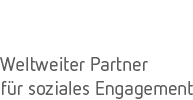A look at SAP’s corporate initiatives to develop new talent for work in emerging markets.
It’s apparent that finding tomorrow’s leaders is one of the biggest challenges facing global CEOs today. According to a recent survey, 93 percent of CEOs acknowledge that they need to change their strategies to attract and retain new talent (previous surveys have indicated the same realization), but less than a third have acted on these plans. Moreover, CEOs are concerned about finding employees who can adapt to new, fast-developing markets in Africa and Asia. Over the next year, 74 percent of CEOs expect to pursue opportunities in Africa.
Meanwhile, another recent survey found that 84 percent of Millennials care more about making a positive difference in the world than workplace recognition. This has come a long way from earlier generations that often prioritized career advancement.
Clearly, these trends indicate it’s time to fundamentally rethink the established approach to talent strategies.









2 Comments.
There’s certainly a lot to find out about this issue.
I like all of the points you made.
Wow, wonderful topic and blog layout! How long have you been blogging for? you made blogging look easy. The overall look of your site is great, as well as the content!